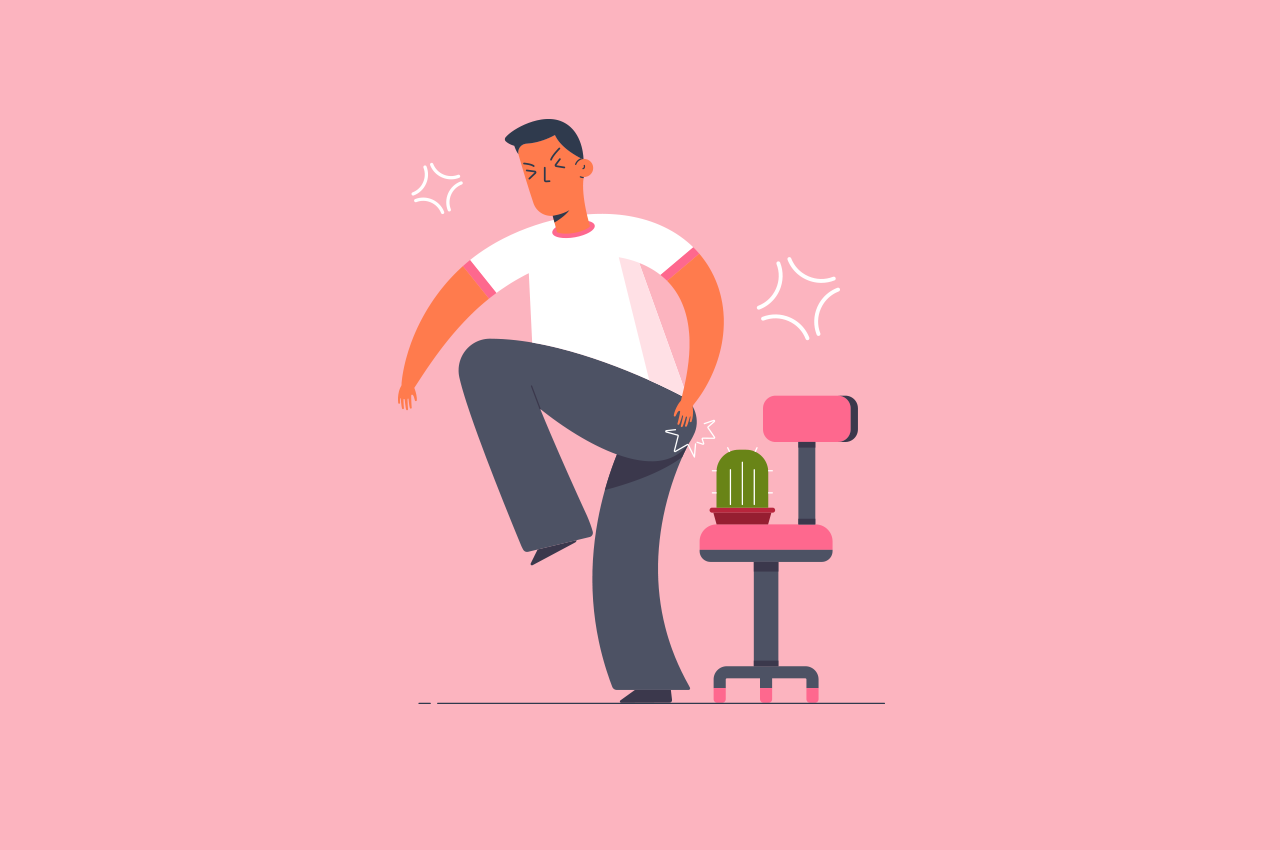You’ve been spasming, having difficulty passing a poop, or have even seen streaks of blood after a stool. Don’t panic. Anal pain, or proctalgia, is not often a sign of any major problem, but might sometimes need medical attention.
What causes anal pain?
Stress: There’s now plenty of evidence that stress can literally make you sick to your stomach, especially in the part of your digestive system that includes your rectum and anus.
Treatment: Relax! Try deep breathing, drinking warm water and massaging your tummy in clockwise circles.
Anal fissures: These are small tears in the skin of the anus, which can be caused by an especially large or hard poop, vaginal delivery, long-term diarrhoea, or an old injury. Symptoms include sharp pain or rectal bleeding or a burning pain that lasts a few hours after your visit to the toilet. You might also feel pelvic pain.
Treatment: Add more fibre to your diet and drink more water. Sometimes you may need surgery, or your doctor will prescribe an ointment. A Botox injection may also be an option.
Haemorrhoids (piles): Many pregnant women can tell you about piles, which are essentially swollen veins in your bum. These are often caused by pregnancy or appear after constipation. It’s one of the most common anal problems and mostly affects people between 45 and 65 years old. You’ll know you have piles if your bottom is itchy or you pass blood after a poop, you feel like you have lumps around your anus, or if there’s redness with pain.
Treatment: Eat more fibre and drink lots of fluids. See your pharmacist for an effective pain remedy. Sometimes blood clots in the veins need to be removed under local anaesthetic.
Anal fistulas and abscesses: If you have a fever, experience irritation around your anus, pass blood after a visit to the loo, have swelling and redness in the area, and constant pain that gets worse when you sit down, you may have an abscess or anal fistula. These are serious and you will need medical help.
Treatment: If you catch it early, you can treat the abscess with antibiotics, but a large one will need to be removed through surgery.
More serious causes of anal pain
Proctalgia fugax involves sudden pain in the rectal and anal area that can last for up to 30 minutes or more at a time. More women than men, and those between 30 and 60 years old report it.
Treatment: Your doctor may recommend muscle relaxants.
Levator ani syndrome shows similar symptoms to proctalgia fugax but incudes pelvic muscle pain. The pain may also be felt after sex, a poop, when you are stressed, or travelling long distance.
Treatment: Pelvic muscle exercises can relieve the symptoms.
Crohn’s disease: Around 1.6 million Americans suffer this disease. Along with anal pain, symptoms can include tummy cramps, bloody diarrhoea and weight loss.
Treatment: Speak to your doctor about the right treatment for you.
Fungal or sexually transmitted infections (STI): Itching may signal a fungal infection or STI.
Treatment: To avoid these, keep the area clean and use condoms during sex. Your GP will advise any antifungals or antibiotics.
Bone problems such as tailbone pain or pain from arthritis or bone tumours.
Treatment: Your doctor will refer you to a specialist.
Prostatitis: infection or inflammation of the prostate gland is quite common.
Treatment: Antibiotics are the go-to for this problem.
Anal cancer tumours: These aren’t common but are increasingly being reported as men practise unsafe sex, spreading the Human Papilloma Virus (HPV), which is a cause of cervical cancer and anal cancer. The symptoms are similar to those of piles and anal fissures.
Treatment: Practising safe sex and getting an HPV vaccination can help prevent cancer. A specialist will advise treatment if these do develop.
When to see a doctor
If the pain isn’t going away, is becoming draining, and you’re still bleeding, visit your GP, who will do a rectal exam and refer you to a specialist if necessary.
References:
- https://www.ncbi.nlm.nih.gov/pmc/articles/PMC4755769/
- https://www.ncbi.nlm.nih.gov/pmc/articles/PMC5615772/
- https://www.ncbi.nlm.nih.gov/pmc/articles/PMC4342904/
- https://www.fascrs.org/patients/disease-condition/anal-fissure-expanded-information
https://www.uptodate.com/contents/proctalgia-fugax/abstract/22 - https://www.uptodate.com/contents/proctalgia-fugax/abstract/20
- https://www.eurekalert.org/pub_releases/2018-01/aga-ndf011618.php
- https://www.uptodate.com/contents/proctalgia-fugax
- http://ddc.musc.edu/public/symptoms/proctalgia.html
- https://www.verywellhealth.com/what-is-chronic-proctalgia-1944698
- https://www.nhs.uk/conditions/anal-pain/
- https://www.ncbi.nlm.nih.gov/pmc/articles/PMC4816871/

